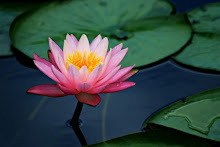This post is for all of you out there who are struggling with a language like Sanskrit, who deal with the difficult personalities of your teachers (indologist do have a reputation of being among the most... complicated people ever to walk the face of the earth), who despite the countless problems you face each day you continue to learn those paradigms, who -unpon realizing you forgot most of what you had learned during those hard-earned vacations- still have the power to open those dreadful grammar books and who, inevitably, at one point or another face THE question coming from a less than friendly interlocutor: "what's the use of it?".
Oh, and let's not forget the variations: "What are you planning to use Sanskrit for?"; "How is THAT going to change peoples' lives for the better?"; "Who needs that anymore?", "India hasn't got a civilization anyway, why bother learning that language?"... I could go on an on, and no, I'm not exaggerating. Usually at this point in the conversation you're glad you don't have a kalashnikov next to you, because you know you'd use it gladly despite you affinity for non-violence and pacifism.
----------------------------------------------------------------------------------
Having this hanging on a nail somwhere in the abyss of my subconscious, I was thrilled to read Niels Hammer's introduction to his Art of Sanskrit Poetry. He most obviously dealt with the same problems as you and I: "Though I have often been asked why I enjoy or study Sanskrit and what benefit such obscure language possibly might convey, I still cannot give an appropriate answer. Basically there's no real answer. Why do we live? What is the use of a Hareball? For each single act and each single thought should be complete in itself, without any arrière-pensée. Joy's soul lies in the doing; the present moment is all there is and that should suffice; [here he quotes the most fabulous of phrases:))] kṛpaṇāḥ phalahetavaḥ (only) the miserable (are) motivated (by) the result(s of their actions). But our civilisations pay the highest price possible for focusing so narrow-mindedly upon "utility"" (p. xv).
One precision is in order here: in India, when one speaks of action, one never means just the action itself, but its result as well. This is karma basically. And as you probably know, the actions (and so their results) is what engender a good or bad karma. Either way however, you are trapped in the infinite cycle of existence, doomed to be reborn until you will have consumed all the results of you actions. As a consequence,in a theistic approach, you are supposed to reach a state in which you realize you are not the one who does the action, but that the action is being done through you (by Reality, or God if you wish). In a Buddhist context, you would probably realize "I" doesn't really exist, and so there's no one to do the acts (and thus no one to collect their "fruits"). This is the way in which one can transcend this infernal cycle.
So the idea is that one needs to act as selfless as possible. This is the main idea behind the Sanskrit phrase cited above.
Hammer doesn't stop at this though, he reviews the imensity of Sanskrit literautre (be it scientific, religious, litterary etc), he draws the attention on the different approach one finds in the west as opposed to the East ("whereas Judaism, Christianity adn Islam primarily are faith-systems [...], Hinduism, Jainism and Buddhism are primarily experience-systems. The difference is between faith in hearsay and subjective cognition. [...] for where the West emphasized moral perfection as the ultimate goal on life, the East preferred the freedom beyond the relative values of good and evil. reason may be a perfect servant but it is a devastating master. (p. XVII") and he finally states the importance of poetry: "generations outlive ideas, change theories, customs and clothes, whereas art remains, like human nature, basically the same - universal, as it suggests wonder, delight, beauty, compassion, sorrow or peace, through the subtles intuition of the fundamental unity of all living beings. [...] But awareness of the past creates humility and puts current issues into a relative perspective, and the purpose of much sanskrit poetic art was to suggest reality in all its absolute suchness thereby enhancing the quality of the present which is all we truly are. This approach tacitly presupposes that there exists a common neurophysiologically determined process causing deep inner (peack) experiences by transforming the view from within as a number of neural pathways in both cortical and subcortical structures are changed; and the art of poetry should be able to further such a process by suggesting the true nature of reality and/or consciousness - or life (p. xix)." Rien que ça!!
So there are those fields of study out of which practical and material stuff results (physics, maths, biology etc), and then there's what we call "human sciences". These are the ones who are fighting to keep us human, or fulfill those "human" needs in us. After a tyring day at the office, you're not gonna go study the intricacies of you car's engine are you? You're gonna go see a movie, a theater play, an opera, you'll read a novel or some poetry.. maybe even learn a language in order to be able to understand a certain culture better and thus raffine your thinking and the way you see the world. This is what Sanskrit does among other things.
Subscribe to:
Post Comments (Atom)

3 comments:
Your first paragraph is way too much! Do you know about these Sanskrit books?
http://www.YogaVidya.com/freepdfs.html
Thanks for the link!!! i actually bought the Bhagavad Gîtâ from this collection but I had no idea they put it -as well as those other wonderful texts- online free of charge!
Hello. And Bye.
Post a Comment